

A startup 'mass extinction event' has begun. You can't see it clearly yet, but i...
source link: https://finance.yahoo.com/news/startup-mass-extinction-event-begun-172711675.html
Go to the source link to view the article. You can view the picture content, updated content and better typesetting reading experience. If the link is broken, please click the button below to view the snapshot at that time.

A startup 'mass extinction event' has begun. You can't see it clearly yet, but it's going to be bad.

Startups raised a ridiculous amount of money in recent years through 2021.
That year, very few startups failed, making the market look artificially robust.
Now, the rate of startup failures is rising. There could be a wave of capitulation in the next year.
Venture capitalists love to talk about how failure is essential to innovation. They will have a LOT to discuss soon.
The startup failure rate is beginning to increase, from artificially low levels in 2021, and there could be a wave of capitulation in the next year where an unusually large number of startups shut down.
"The Mass Extinction Event for startups is underway," according to a recent tweet from Tom Loverro, a general partner at IVP, which has backed companies including CrowdStrike, Datadog, Discord, Klarna, Slack, Snap and Twitter. "It is a news footnote most of the time. Don't be fooled. The market has changed. Funding announcements get lots of headlines. Bankruptcy filings…less so." The Wall Street Journal turned his insight into a great story here.
As Loverro notes, startups die quietly and slowly. They also shut down a lot. While VCs tweetstorm the latest M&A or IPO exit, there are many more young businesses in their portfolios that wither in the background.
This is the way venture capital is supposed to work. VC funds back loads of startups and they expect most to fail. They only need a small handful to become the next Meta or Twitter or Snowflake to generate big returns.
So there's a natural run-rate of startup failures. The problem is that the VC boom that peaked in 2021 put this natural order out of whack. There was a frenzy of investment, where startups raised massive amounts of money and some businesses got funding that maybe shouldn't have. The failure rate plunged as VCs money gushed everywhere. SoftBank and Tiger Global were major actors here, but there were many others.
The money spigot has run dry
Now, the money spigot has run dry (except if you're an AI startup). There was so much money raised in recent years that startups have a lot of runway to survive. But, at some point, struggling businesses will run out of cash and no one will want to fund them again.
This will produce a series of painful asset sales, nasty cram-down recapitalizations, ultra-cheap acqui-hires, and yes, simple shutdowns and bankruptcies. You can't see this slow-motion train wreck happening right now because startups are not public companies. There's no stock price that you can watch tumble to see fortunes crumble in real-time.
 AP Finance
AP FinanceBarely a bear: Wall Street exits what turned out to be a fairly tame bear market
While it seemed scary and interminable, Wall Street's bear market last year was meeker than most. After the S&P 500 on Thursday closed at a level more than 20% above where it was in mid-October, Wall Street can give official dates for the birth and death of its last bear market, which is what traders call a long decline of at least 20% for the S&P 500. Worries about the highest inflation in generations drove the drop.
2d ago Fortune
FortuneMeta CEO Mark Zuckerberg mocks Apple’s headset reveal, saying every demo was ‘a person sitting on a couch by themself’
The announcement of Apple’s Vision Pro threatens to overshadow Meta’s own headset announcement last week.
22h ago Business Insider
Business InsiderForeign investors have been dumping vast amounts of Chinese assets, and putting money there will only get riskier
"Putting money in China is going to become riskier, and de-risking is only going to become more commonplace."
1d ago Business Insider
Business InsiderChina's economy is so discouraging that desperate young people are flocking to temples to pray for some luck
Visits to Beijing's Yonghe Temple, which is favored by those seeking financial accomplishment, soared 530% in March and early April from a year ago.
10h ago Fortune
Fortune‘It’s not even good for money laundering’: ‘Black Swan’ author Nassim Taleb lashes out at Bitcoin and says it’s ‘transformed into a cult’
Nassim Taleb said crypto was less trustworthy than the Mafia.
14h ago Fortune
FortuneA.I. exploded in popularity because it’s so easy to use. Here’s what blockchain developers can learn from that
The A.I. industry's approach to user adoption could prove instructive as the two technologies continue to mature.
1d ago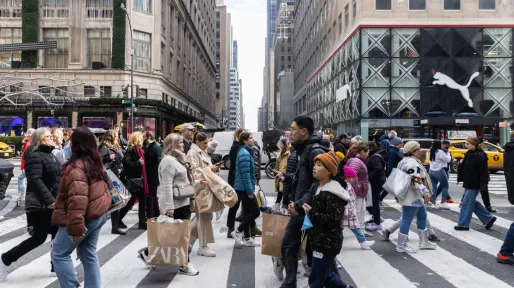 Fortune
FortuneThe CEO behind the success of Lululemon and Reebok: ‘A reckoning is coming as Gen Zers hold retailers accountable for single-use plastics’
The consumer shift towards sustainability and away from harmful single-use plastics is imminent. Business can either respond to it or be left behind.
22h ago Business Insider
Business InsiderThe 'mother of all melt-ups' in stocks could be quickly followed by a meltdown as the bubble in overvalued names pops, Ed Yardeni says
"The problem with melt-ups is that they almost always invariably are followed by meltdowns," Ed Yardeni warned.
2d ago Business Insider
Business InsiderBinance.US tells customers to withdraw their cash from the exchange as the SEC pursues its 'ideological' attack on the crypto industry
"The SEC has taken to using extremely aggressive and intimidating tactics in its pursuit of an ideological campaign," Binance.US said in a statement.
13h ago Decrypt Media
Decrypt MediaMarc Andreessen Warns Against 'Government-Protected Cartel' of Major AI Firms
Noted venture capitalist Marc Andreessen says the market should decide which AI companies succeed or fail—not government restrictions.
1d ago TipRanks
TipRanksMorgan Stanley Says Buy These 2 High-Yield Dividend Stocks — Including One With 11% Yield
Markets move in cycles, experiencing ups and downs that are influenced by various conditions, ranging from inflation rates to consumer sentiment. The key to successful investing is to track these shifts, avoid the black swans, and build a portfolio that can consistently generate returns. Dividend stocks, with their steady passive income stream, make a sound addition to such an investment strategy. According to Morgan Stanley’s outlook, recession is expected to occur this year, making dividend st
21h ago Investor's Business Daily
Investor's Business DailySolid Vanguard Fund Reveals Its Knack For Finding Top Dividend Stocks
The best mutual funds know owning a collection of blue-chip dividend stocks that boost their pay out every year will pay off.
23h ago Bloomberg
BloombergCrypto Markets Slump as SEC Regulatory Crackdown Spooks Investors
(Bloomberg) -- Smaller coins sank in a sharp crypto market selloff as a Securities and Exchange Commission crackdown on key digital-asset exchanges unnerved investors.Most Read from BloombergAmericans Are Leaving Portugal as Golden Visa Honeymoon EndsJeff Bezos Has Gained $10 on Mystery Purchase of One Amazon ShareTrump Tried to Hide Documents, Share Secrets, Indictment AllegesDonald Trump Charged in Florida Over Secret Documents CaseTesla Set for $3 Billion Boost From Ford, GM Charger DealsCard
44m ago Investor's Business Daily
Investor's Business DailyTop Funds Pour Money Into Apple, Microsoft And These 2 Sectors
In addition to betting billions on Apple and Microsoft, the best mutual funds have lasered in on software and semiconductors.
14h ago Business Insider
Business InsiderStocks would plummet 20% if the bond market's expectations pan out, JPMorgan says
The warning comes as the bear market in the S&P 500 has ended, setting it up for a new bull market.
12h ago Bloomberg
BloombergChina Stock Bulls Hit Reset Button After $1.5 Trillion Rout
(Bloomberg) -- After being wrong-footed by a $1.5 trillion rout in Chinese stocks, some of Wall Street’s biggest banks are coming around to a less optimistic consensus. Most Read from BloombergAmericans Are Leaving Portugal as Golden Visa Honeymoon EndsJeff Bezos Has Gained $10 on Mystery Purchase of One Amazon ShareTrump Tried to Hide Documents, Share Secrets, Indictment AllegesDonald Trump Charged in Florida Over Secret Documents CaseTesla Set for $3 Billion Boost From Ford, GM Charger DealsSt
10h ago Investor's Business Daily
Investor's Business DailyHere Are The 12 Small Stocks Everyone Suddenly Wants To Buy
Huge S&P 500 stocks dominated all year. But suddenly this month, investors are looking at scooping up much smaller companies for a song.
22h ago Fortune
FortuneFormer co-CEO of failed U.S. lender First Republic lands on her feet with a new job—taking on one of the toughest tasks in international finance
Hafize Gaye Erkan will have to persuade her fellow Turks not to abandon the lira wholesale in a bid to stave off an impending currency collapse.
20h ago SmartAsset
SmartAssetWhat Is a Realistic Rate of Return For Retirement?
Everyone loves seeing growth in their portfolio. However, a good year of investing doesn't necessarily indicate a sound long-term investment strategy. Generating sufficient retirement income means planning ahead of time but being able to adapt to evolving circumstances. As a … Continue reading → The post What Is a Realistic Rate of Return for Retirement? appeared first on SmartAsset Blog.
21h ago Business Insider
Business InsiderThe bear market in stocks has officially ended and a new bull market has kicked off. Here's why investors can expect more gains ahead.
It wouldn't be out of the ordinary for stocks to continue their rally after cementing a new bull market, according to nearly 75 years of market data.
12h ago Bloomberg
BloombergEV Charging Stocks Sink After General Motors Says It Will Use Tesla’s Charging Network
(Bloomberg) -- General Motors Co.’s move to adapt its electric vehicles to use Tesla Inc.’s network of Superchargers has sent shares reeling for other makers of EV charging stations. Most Read from BloombergAmericans Are Leaving Portugal as Golden Visa Honeymoon EndsJeff Bezos Has Gained $10 on Mystery Purchase of One Amazon ShareTrump Tried to Hide Documents, Share Secrets, Indictment AllegesDonald Trump Charged in Florida Over Secret Documents CaseTesla Set for $3 Billion Boost From Ford, GM C
14h ago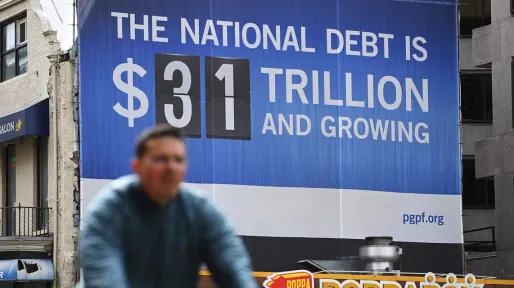 Barrons.com
Barrons.comBonds Are Entering a New Era. How to Play It.
Bond yields are starting a secular climb after falling from 1981 to 2021, say two Wall Street legends. What it all means for investors.
18h ago Investor's Business Daily
Investor's Business DailyIt Only Takes $1 To Become A Millionaire With Stocks — Here's How
It doesn't matter how much money you have now — you can be a millionaire. All that matters is which S&P 500 stocks you buy.
2d ago Zacks
ZacksAlibaba (BABA) Stock Sinks As Market Gains: What You Should Know
Alibaba (BABA) closed at $85.50 in the latest trading session, marking a -0.74% move from the prior day.
12h ago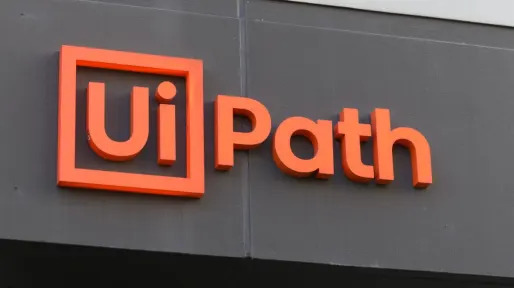 Barrons.com
Barrons.comUiPath Stock Is Flying This Year. Analyst Thinks the Party Is Over.
UiPath stock was declining Friday after an analyst downgraded shares of the business- automation software company, citing concern about how the rise of artificial intelligence could affect it. Wells Fargo analyst Michael Turrin lowered his rating on stock in UiPath (ticker: PATH) to Equal Weight from Overweight, but maintained his target of $20 for the price. Shares of UiPath were down 1.2% Friday to $18.06.
19h ago Zacks
ZacksAmazon (AMZN) Stock Sinks As Market Gains: What You Should Know
In the latest trading session, Amazon (AMZN) closed at $123.43, marking a -0.66% move from the previous day.
12h ago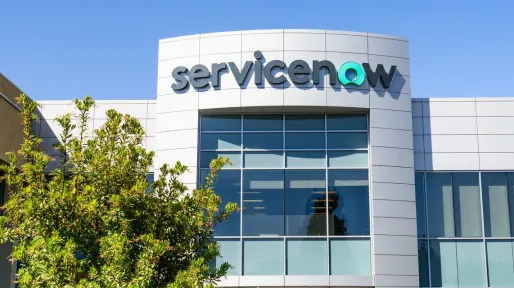 Barrons.com
Barrons.comServiceNow Gets a Price Target Raise. Why It’s an AI Winner with Nvidia.
Piper Sandler analyst Rob Owens raised his ServiceNow price target to $600 from $525 and reaffirmed his Overweight rating on the stock.
16h ago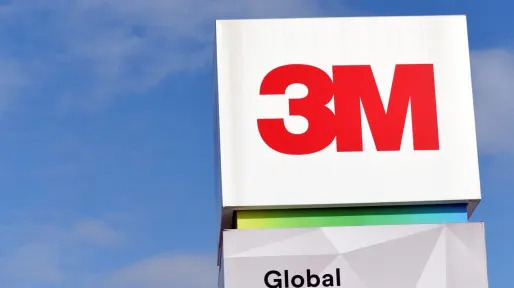 The Wall Street Journal
The Wall Street Journal3M Can’t Resolve Mass Lawsuits Through Earplug Unit’s Bankruptcy, Judge Rules
A bankruptcy judge rejected 3M’s use of chapter 11 to resolve the largest mass tort case in U.S. history, dismissing a “fatally premature” bankruptcy case filed by its military earplug manufacturing unit.
13h ago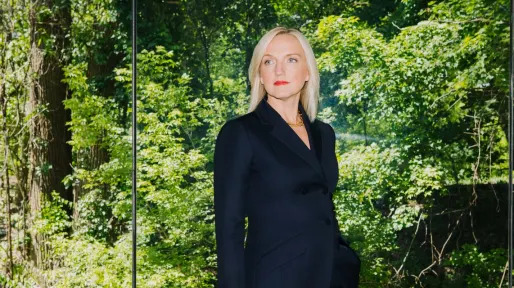 Barrons.com
Barrons.comBonds Are Back. Where Vanguard’s Bond Boss Sees Value Now.
Sara Devereux, head of fixed income at Vanguard, oversees a unit with more that $2 trillion in assets. Her take on Treasuries, corporates, munis, and more.
2d ago The Wall Street Journal
The Wall Street JournalEx-First Republic Executive to Head Turkey’s Central Bank
ISTANBUL—Turkey’s President Recep Tayyip Erdogan appointed a former First Republic Bank executive to lead the central bank, a likely shift away from the unorthodox economic policies that have sown economic instability and driven away foreign investors. The new central-bank governor is Hafize Gaye Erkan, who until late 2021 was the co-CEO of First Republic Bank, which collapsed and was sold to JPMorgan Chase last month. Erkan is Turkey’s first woman central-bank governor and replaces Sahap Kavcioglu, an Erdogan loyalist who was installed in March 2021 as the Turkish president took greater command over the economy.
1d ago Investor's Business Daily
Investor's Business DailyAdobe Jumps To A 52-Week High On AI News
Adobe rallied to a new high Friday following an announcement about its new artificial intelligence software Thursday. The digital media company announced its Firefly for Enterprise application for generative AI. Its beta version launched in March and it will be available to customers in the second half of this year.
17h ago CoinDesk
CoinDeskBitcoin Payments Firm Strike Moves Custody In-House After Ditching Third-Party Services
The move is a “culmination of over two years of effort,” according to Strike CEO and cofounder Jack Mallers.
16h ago Benzinga
Benzinga3 Low-Priced REITs Making Big Moves
Several low-priced real estate investment trusts (REITs) made huge moves higher this week, and many are in the office or healthcare subsectors. Investors know that low-priced stocks can be volatile, and it’s as easy to lose as it is to gain a lot in the short term. These stocks are not for conservative investors or for people on a fixed income who cannot afford to take large risks with their capital. But abrupt new moves in a low-priced stock often portend even more future gains to come. If an i
12h ago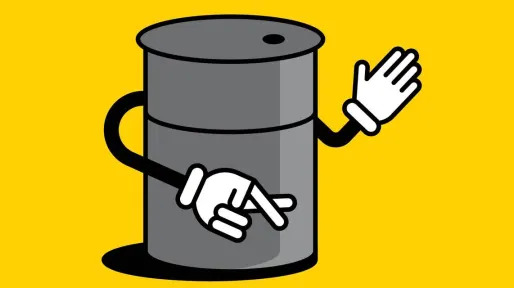 Barrons.com
Barrons.comOil Has a Pricing Disconnect—and a Trust Issue
Official statistics on the oil market from official bodies like OPEC and the Energy Information Administration may not reveal actual supply-and-demand dynamics. That creates a serious problem for investors.
11h ago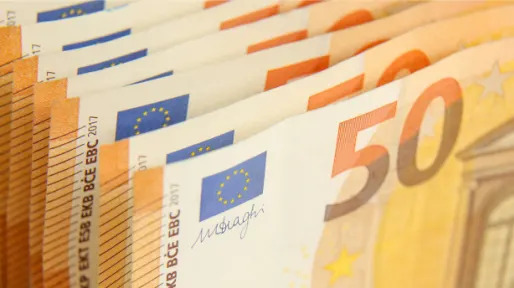 FX Empire
FX EmpireEUR/USD Weekly Forecast – Euro Bounces
The euro had initially fallen during the trading week but has turned around to bounce toward the 1.08 level, an area that has been important several times.
20h ago Forkast News
Forkast NewsWeekly Market Wrap: SEC crackdown on Binance, Coinbase ‘can’t stop’ Bitcoin as it trades above US$26,000
Bitcoin recovered above the US$26,000 psychological level after a brief dip, as investors seemingly shrugged at the SEC’s crackdown on Binance and Coinbase. The quick crypto recovery could be a sign of a maturing asset class, industry experts told Forkast.
21h ago Zacks
ZacksTime to Buy These Consumer Food Stocks with Stellar Dividends
Many of these food companies are attractive as they offer stellar dividends in addition to the potential for near-term upside in their stocks.
1d ago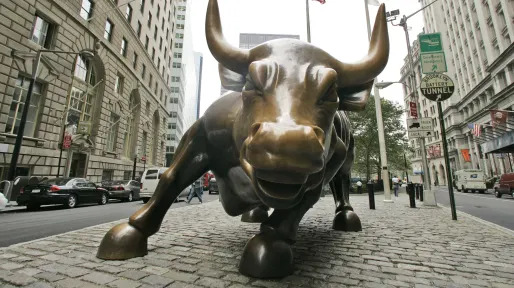 Yahoo Finance
Yahoo FinanceS&P 500 finishes week at highest level since August, as Nasdaq logs 7th-straight winning week: Stock market news today
Stocks popped on Friday after the S&P 500 officially entered a bull market to end Thursday's trading session.
14h ago Barrons.com
Barrons.comSnowflake Stock Sees Big Buy From Director Mark D. McLaughlin
Former Palo Alto Networks CEO Mark D. McLaughlin just bought $300,000 of shares of cloud-software firm Snowflake.
15h ago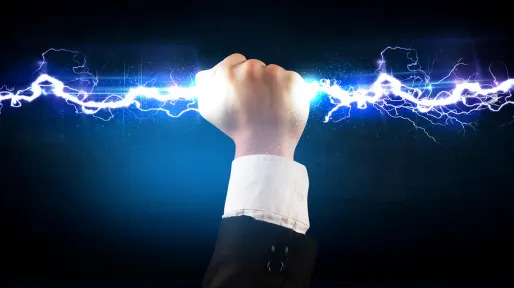 Zacks
ZacksCloudflare (NET) Outpaces Stock Market Gains: What You Should Know
Cloudflare (NET) closed the most recent trading day at $63.82, moving +1.11% from the previous trading session.
12h ago
Recommend
About Joyk
Aggregate valuable and interesting links.
Joyk means Joy of geeK